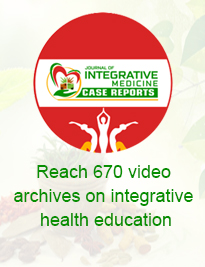- Editorial
- Year:2021
- Volume:2
- Issue:1
A recipe for Policy research in AYUSH educational and research programs
Kalyan MaityVijaya Majumdar
Amit Singh
Akshay Anand
Abstract
Yoga, Ayurveda, and Siddha represent the ancient science of healthy living originated in India. Some of the oldest texts from around 5000 years back, such as Vedas and Upanishads, provide evidence of such lifestyle. Many seals and fossils from Indus Valley Civilization authenticate the practice of Yoga in ancient India. According to yogic tradition, Shiva, one of the Hindu Gods, is the first yogi (Adi yogi) and the first teacher (Adi Guru). The meticulous practice of Yoga is widely believed to play a major role to overcome mental and physical suffering and leads to self-regulation, and finally to self-realization or liberation. Since the Pre-Vedic period around 2700 B.C., people started practicing Yoga. Later on, Patanjali Maharshi (between 3rd to 6th centuries BC) systematized and codified knowledge of Yoga through his Yoga Sutras. Later, with the help of many sages and masters, Yoga spread through different traditions, lineages and Guru-shishya parampara. Various Yoga schools viz. Jnana, Bhakti, Karma, Raja, Dhyana, Patanjali, Kundalini, Hatha, Laya, Jain, Buddha, Hatha etc. which follow their own practice, principles and tradition. However, they all lead to the same goal. The history of modern Yoga started in 1893 when the Parliament of Religions was held. After that many yogacharya, teachers and practitioners tried to spread Yoga, not only in India but worldwide (1). One of the milestones in the history of Yoga has been the adoption of the International Day of Yoga. The Honorable Prime Minister Sri Narendra Modi addressed the world community on 27th September 2014 in 69 sessions of the United Nations General Assembly (UNGA) (2). The proposal was approved on 11th December 2014 by 193 members of UNGA to establish 21 June as “International Day of Yoga”. Six months later after passing the resolution and confirmation to establish IDY, the first IDY held in 2015. Several Yogic events were organized and publicized throughout India as well as abroad and got national and international publicity that Yoga has originated from Indian culture. The essential and pivotal role of Yoga in education, pedagogy, curriculum, as well as clinical research has been realized well across the globe (3). To achieve the same, AYUSH Ministry was established November 9, 2014 (http://ayush.gov.in) to facilitate research and educational activity in Ayurveda, Yoga and Naturopathy, Unani, Siddha and Homoeopathy. The existence and excellence of Yoga-based researches in the premier Institutes of India is another milestone towards the implementation of yogic sciences in the academic sphere. Several Yoga departments and centers in the premier Institutes and central universities of India, their existence and establishment, is the result of the consultative meeting on Yoga Education in Universities held in Bangalore on 2nd January 2016, chaired by the Hon’ble Minister for Human Resource Development in the presence of Vice-Chancellors from Indian universities. It was resolved to set up a Department of Yogic Art and Science in the Universities and constitute a committee on Yoga Education in universities to look into various aspects pertaining to setting up of these Departments. Further, collaborative efforts were made to support Psychology, Philosophy, and Yogic Science at different collaborating organizations, by utilizing their respective expertise, knowledge, resources and infrastructure (https://www.nhp.gov.in/list-of-yoga-institutes_mtl). The aim of such centers was to understand deeper knowledge of Yoga philosophy and Yoga therapy based on classical Yogic texts. For the last several years, S-VYASA University has been doing research on evidence-based Yoga & its application, to prevent diseases and to promote positive health (https://svyasa.edu.in/Research_Publications.html). Swami Vivekananda Yoga Anusandhana Samsathana (S-VYASA), established in 1986, is a pioneer Institute in the field of Yoga Research. It is the first and foremost Institute with a broad vision of scientifically evaluating yoga, its applications, and policies led by Dr. H R Nagendra.
Keywords
Ayush
Integrative health
Yoga
Research



